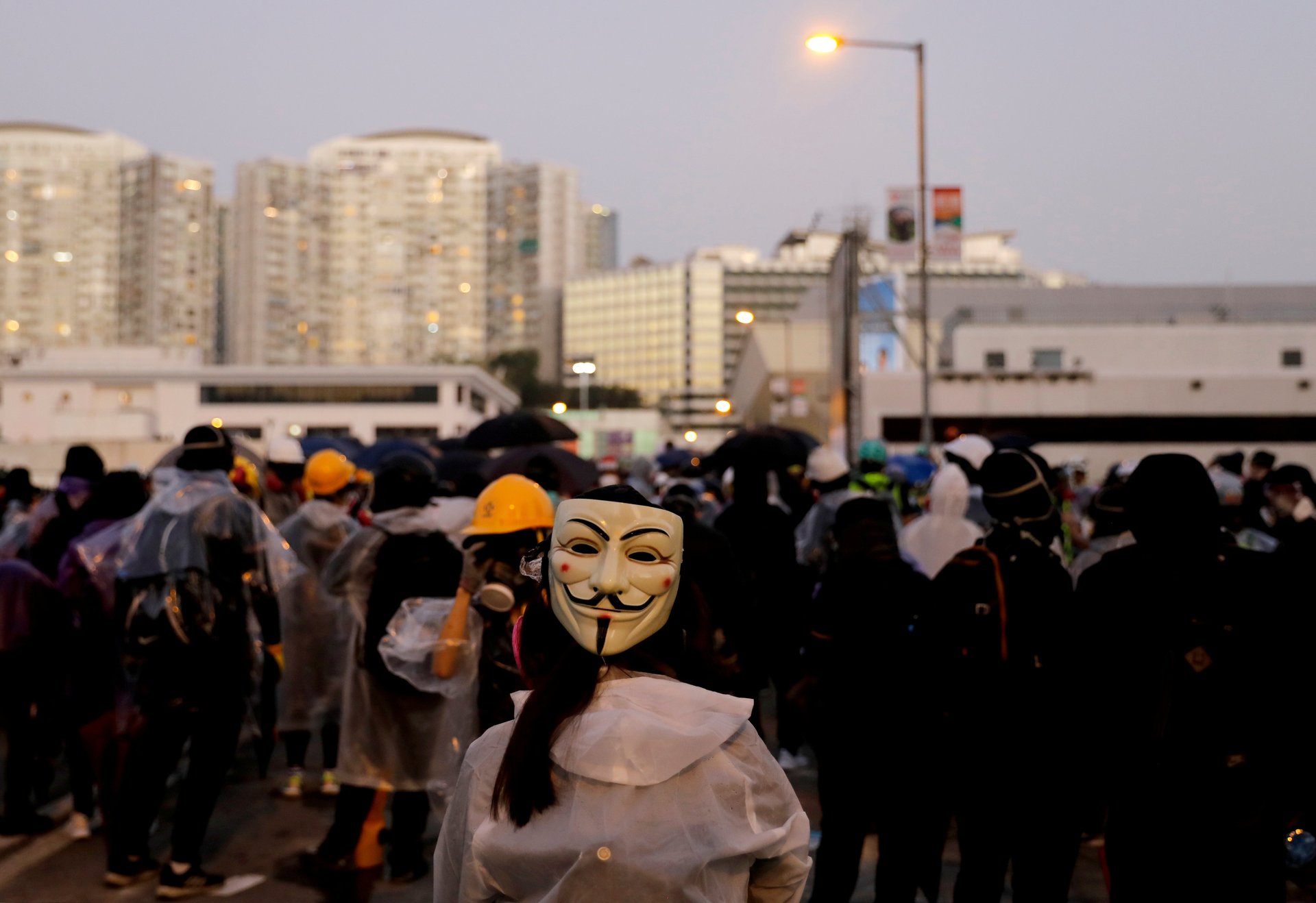China is threatening to hobble Hong Kong’s courts because it didn’t like a ruling
A day after a Hong Kong court ruled that the government’s face mask ban was unconstitutional, China’s top legislative body has condemned the decision and said it had “severely weakened” chief executive Carrie Lam’s ability to govern.


A day after a Hong Kong court ruled that the government’s face mask ban was unconstitutional, China’s top legislative body has condemned the decision and said it had “severely weakened” chief executive Carrie Lam’s ability to govern.
In a statement (in Chinese) issued today (Nov. 19), the National People’s Congress Standing Committee said China’s constitution and the Basic Law “jointly form the constitutional foundation” of Hong Kong, and that whether Hong Kong legislation is consistent with the city’s mini-constitution “can only be judged and decided by the National People’s Congress Standing Committee.”
Though the pronouncement is so far only a statement and not an official ruling, the move appears to directly threaten Hong Kong’s judicial independence. Under the Basic Law, Hong Kong’s judiciary has the power to interpret the constitution in cases “which are within the limits of the autonomy” of the city. China’s legislature is only supposed to intervene on issues concerning Beijing, or concerning the central authorities and Hong Kong.
In this instance, whether Beijing can give its interpretation of the Basic Law may hinge on whether it can make the case that the mask ban is a national concern that exceeds the limits of Hong Kong’s autonomy.
The statement from the NPCSC “looks like a press release telegraphing what it thinks the interpretation should be,” said Julian Ku, a professor at the law school of Hofstra University in New York. “So I wonder if it is kind of a signal to Hong Kong courts, a warning, to back off and not trigger a legal confrontation with the NPC.”
Beijing has in five previous instances stepped in to give its own interpretations of Hong Kong’s constitution, most recently in 2016 when it made a ruling that disqualified two elected pro-independence lawmakers after they deviated from the standard oath during their swearing in.